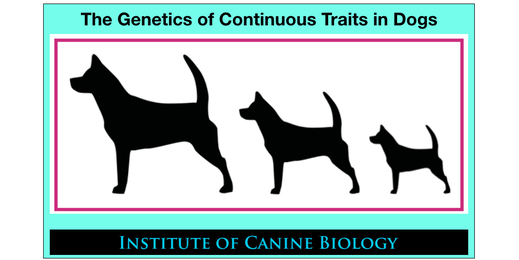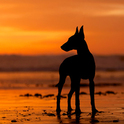These are called "continuous" or quantitative traits; most of the traits under selection by dog breeders are of this type. For most of us, the process of identifying the markers associated with particular traits is a "black box" from which information mysteriously emerges from huge files of cryptic genotype data. How are scientists able to identify which of the many of thousands of markers play a role in the expression of a specific trait?
We will use the raw DNA data file provided by Embark for your own dog, together with information about the size of your dog that you will provide. If we get data for enough dogs of a single breed, we can also explore the genetic basis of variation within a breed, also for a variety of mixed-breed dogs.
We will review some published studies for comparison with our own results, so you will also get to make comparisons with "real world" information.
This course is a great opportunity for you explore "under the hood" and learn how scientists go from a table of data to new information extracted from the data for your own dog!
Don't miss this great learning opportunity and the chance to analyze the data for your dog!
This unique online course is $125 and lasts 10 weeks, with students free to work along with the class or at their own pace. There are no prerequisites and a scientific background is not required - just your keen interest in dogs!
Class starts 11 February. Register now to join us!
Check out the information for the course and register here
https://www.instituteofcaninebiology.org/continuous_traits.html
ICB's online courses
***************************************
Visit our Facebook Groups
ICB Institute of Canine Biology
...the latest canine news and research
ICB Breeding for the Future
...the science of animal breeding


